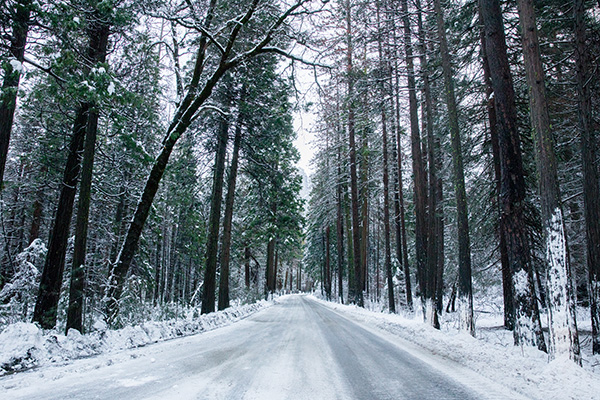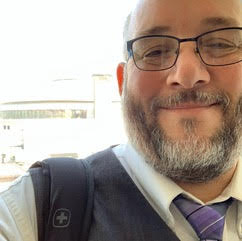New Year’s Day and Clarity of Reality
The last couple of weeks since end of the fall 2015 semester ended have allowed me the opportunity of regrouping, recouping, and attempting to focus on my many projects. The fall semester was rough to be sure with so many obligations on campus, and with projects off campus—writing took an extreme back seat. But here I am writing again, while it is snowing outside—finally we have snow. I have been enjoying reading again too.
I have been perplexed by the passing of time lately. It seems like only yesterday I was teaching and writing during the summer, and now a full semester has blown past me. I struggled a couple of days ago with the realization of the loss of my dog Bodhi—it’s been a year. I swear there are times where my service in the Army was just a couple of years ago—and it was now twenty plus years ago.
How did I get old?
I am looking at forty-five square in the face on Tuesday. I am not sure if I am elated, perplexed, or perhaps even a little bit saddened over it. I am now teaching students who were born in the mid to late 1990s; how’d that happen? I feel like I am just getting started with all the writing and projects that I’ve thought about—ruminated upon—and procrastinated with, yet time keeps steadily marching forward.
I wish I could say I was full of endless hope for the New Year that started today. I wish I could say that I am excited for school to start back up in a few weeks. I wish I could say that I have complete and utter faith some of the problems in the world today will be solved in the coming year. But I am not sure if I am cynical, jaded, or just pessimistic. By the same understanding, I don’t dread these coming events—but together they neither raise optimism, nor pessimism in me—they at times seem like another thing to work through.
Every year I purchase a new journal to write in—one that I call my pen & ink journal. I write in several mediums and formats, or more aptly attempt to write in these mediums and formats. Every year, I hope that that particular journal will be used every single day—or at a minimum every other day. But the reality of it is, that I often write once a week, if I am lucky. There are times, as I re-read 2015’s pen & ink journal where I skipped a month; and even six weeks at a time.
Every year I choose a new quote to conclude my entries with in the pen & ink journal. I changed tactics a couple of years ago—I purposefully choose a passage that allows me to tack something onto the ending quote. For example, in 2015 I used a quote from Vine Deloria Jr. that went like this, “To exist in Creation means to” and then I would reflect and add something on to it.
Sometimes these endings were positive or full of gratefulness; and other times they were labored and moody—but these ending did reveal things to me—when examined over the course of a year.
This year, I chose a quote from John Mohawk. The last several years my quotes have tended to flip-flop between something from Deloria and something from John. This year’s quote from John comes from Jose Barreiro’s book, Thinking in Indian: A John Mohawk Reader, published in 2010. The essay is titled, “Clear Thinking: A Positive Solitary View of Nature.” My quote this year is a slight variation of, “…on one hand there are dreams and visions, and on the other hand there’s a responsibility to maintain a clear vision of reality, and those two streams of thought and reaction have to live cooperatively together.”
Dreams and visions living side by side with a clear vision of reality, what does that mean? I often like looking back over the last year that has just ended—seeing how much as changed. Sometimes it seems to have happened so long ago; and in other moments it seemed but a second ago. This year, and this quote started me thinking—how often are we asked, or do we assume that we must choose either dreams and visions or maintaining clarity of reality? Furthermore, what obscures that clarity of reality in our modern day world?
While I embrace and in some ways adore my technology, does this allow for clarity of reality? Does technology allow me to dream about what might be—or how to help implement what ought to be? Or can, as it so often does, allow a feeling of being overwhelmed, distracted, or disoriented by the sheer number of things happening in the world all at once? Social media allows us to all feel connected—but are we connected truly—or is it more voyeuristic in nature?
I have long been a news hound. I enjoy a morning paper. I read several blogs, websites, and news sources for my daily fix. I have employed some new apps that supposedly are tailored to my desires of information and news. At the moment, the often fail miserably or are so redundant that I often feel frustrated with these apps.
Yet even then, I have to ask—am I truly being informed? Or is some equation not only steering advertisements towards me, but what the equation/programmer thinks I will be interested in—based upon social media, likes, and the sort? I could, and have done so in the past, spent hours looking at news sources. I run the spectrum in my consumption—from “liberal” sources to “conservative” sites. I always try to find the truth in the middle somehow—but it often feels futile, and a waste of time.
I am truly perplexed by students I teach with each passing semester. I can paint with the broad stroke that many appear disinterested—but they are interested, just in different things than I am. Is that because there is almost two decades of life experience between us, as teacher and student? Is it because I was raised in a slightly different era than that of the student I teach? One can clearly see the patterns in social media—especially with the “Like and Share if you know what this is”—and something discernible like a 45 RPM adapter insert for a record and record player. But is that a real or imagined divergence between the generations?
I wonder if that is what my grandparent’s generation thought of as the difference between themselves and my generation. For the record, my grandparents were young during the Great Depression—and lived until the late 1980s, and even early 2000s. I am told I am part of Generation X. I believe that the current crops of students I work with are part of the millennial generation. But these labels—is that what keeps us separated? Or is it somehow artificial in nature? Or is it merely about life experiences in the first place? I believe as we grow and face different things, we think back with a mixture of nostalgia and a case of the “What if I had done this instead?”
I also think about how easy it is for my students to recite the latest trend in social media. Or they can expound upon the latest occurrence in reality television shows and talent shows. For some, they can expand eloquently upon sports teams, players, and fantasy leagues. Yet if I bring up a piece of legislation or law that pertains directly to their future like student loans, social security—or something considered by them to be “political” they know little if anything about it. Nor, as often is the case-when they explain it to me, are they necessarily interested in the history or past.
I have had some truly bold students who will flat out say, they are only there because someone told them they had to take this course for gen. ed. credit. But I always ask of them and myself—what will the get out of the course and discussion with some input and effort? In truth, it is frustrating at times. But in other moments the delight I feel when they have their individual or collective “Aha!” moments is indescribable.
And yet as I reflect on my quote from John’s essay this year—there is that potential of thinking in this conundrum with my students. It is not about giving up on dreams or visions to have only a clear view of reality. It is about allowing, living, and practicing both lines of thinking and thought. The reality is that John’s essay is not about our collective thinking or his individual thinking—rather it was reflective of an ancient, non-western way of thinking. But this thinking did and does more than just require intellectual engagement.
The rest of the essay talks about engaging the natural world around us through ceremony; engaging with other families that form the basis for community; and perhaps most importantly to me engaging each other in conversations and dialogues about both sets or lines of thinking—our dreams and visions and our clear views of reality. To me that is how we allow and encourage both lines of thinking to coexist together, as the quote suggests was understood by the ancients.
The question is: how do we relate those lines of thinking and coexistence to the bigger larger, media driven, social media inundated technological world that simulates or mimics connectivity to one another?













